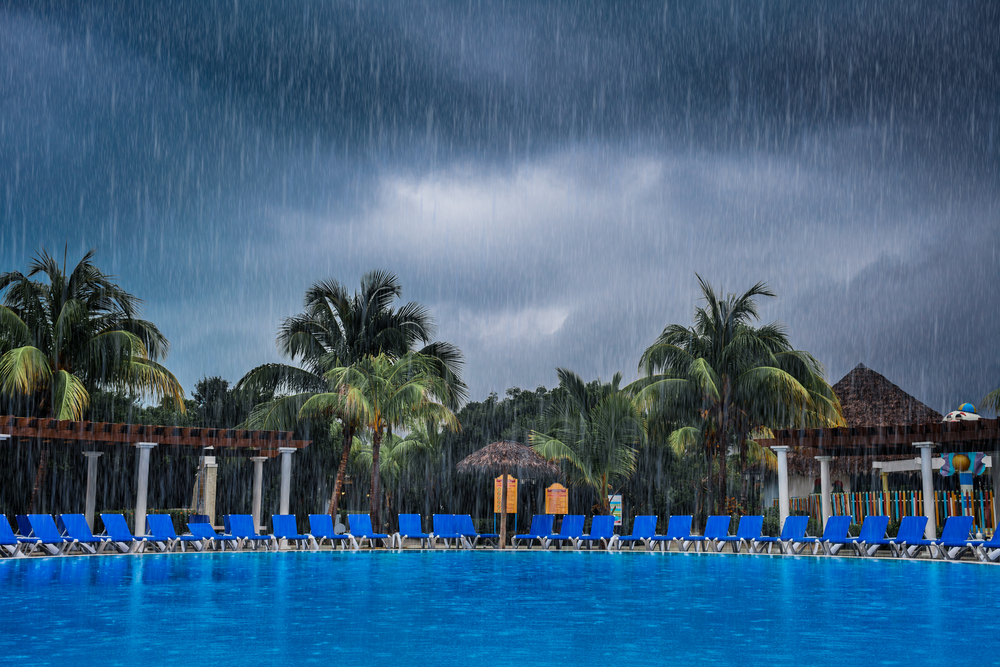4 Late Summer Weather Events All Lifeguards Need to Understand

While the sun and warm weather are major perks of the summer months, the season isn’t without its inclement weather. And when nasty weather rolls around, it’s important for you as the lifeguard to understand the dangers of different events. This will help you keep your swimmers safe, and allow you to let them back in the pool when the coast is clear so you can all keep having fun.
In late summer, the weather can be especially challenging. Here are a few late summer weather events you may encounter on the job, along with some tips to help you keep swimmers — and yourself — safe.
1. Extreme heat
Even when it seems like you should be getting a break from the heat, there will still be a few scorchers left in the summer. While the pool is a perfect place for swimmers to cool off, they (and you) still need to stay hydrated to avoid heat stroke. Make a point to drink water regularly, and be sure to reapply sunscreen frequently. If you encounter sunbathers who look sunburned, check in with them — even if you have to wake them up!
2. Heavy rain
While rain is not inherently dangerous for swimmers, it can make it very difficult for you to properly see and scan the water. In the event of extremely heavy rain, it may be appropriate to pause pool activities. Typically, if you can’t see the bottom of the pool, it’s time for swimmers to take a break until the rain lets up. Check your pool’s safety policies. At many pools, swimmers may stay at the pool deck while they wait for you to decide when it’s safe to return to swimming.
3. Thunderstorms and lightning
When you first hear thunder or see lightning, you’ll need to determine how far away it is to see if you need to evacuate the pool. Count the time between seeing lightning and hearing thunder—every five seconds is equivalent to one mile. Anything less than 30 seconds means that the pool should be evacuated and swimmers sent to safe shelter. Some pools will require evacuation at any sign of thunder or lightning. Pool activities should stop for 30 minutes from the last time you hear thunder. If the storm is continuous, you may need to talk to your supervisor about closing for longer.
4. Hurricanes and tornadoes
In the event of forecasted hurricane or tornado weather, you’ll need to close up pool umbrellas, put away furniture, and store any loose equipment. Your individual pool may have other protocols in place for preparedness. If there’s a serious threat of a hurricane or tornado, your supervisor will likely close the pool to avoid putting swimmers at risk.
Hopefully you will see only blue skies and warm weather while you’re at work. But your supervisor will walk you through the procedures for dealing with inclement weather events in your area. That way, you can keep your swimmers safe while ensuring them as much swimming time as Mother Nature will allow.
At American Pool, we train and place lifeguards at pools all year long, not only during the summer. Visit our Guard for Life website to get started.
